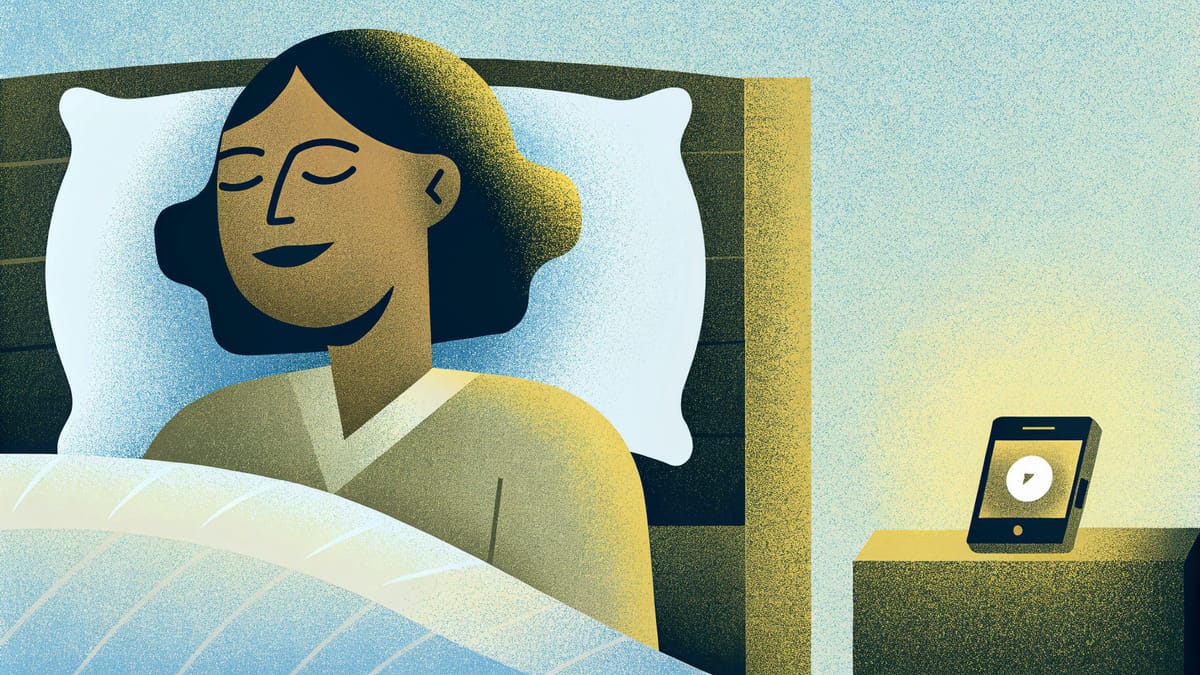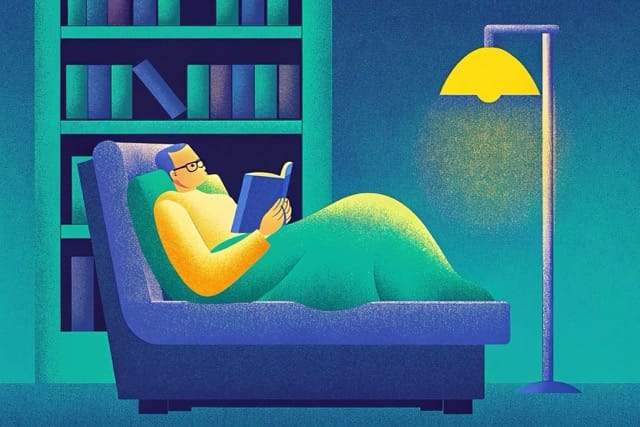Can Listening to Bedtime Stories Improve Dream Recall
Explore how bedtime stories from Dreamland Tapes can enhance dream recall, offering insights into improved sleep quality and creative subconscious exploration.

Do Bedtime Stories Enhance Dream Recall
Have you ever woken up with vivid memories of a dream and wondered why some dreams stick with you while others fade away? Dream recall differs widely between individuals, shaped by factors like personality, sleep quality, and memory. But could something as simple as listening to bedtime stories improve your ability to remember dreams?

What Influences Dream Recall
Dream recall frequency, or how often you remember your dreams, isn’t the same for everyone. Various factors, from how you sleep to your personality traits, can impact this. Understanding these influences can help shed light on what might improve dream recall.
Let’s start with personality dimensions. Certain personality traits, such as high absorption (a tendency to immerse yourself in experiences) and openness to experience, are linked to higher dream recall. People who are naturally curious or imaginative may find it easier to bring their dreams into conscious memory upon waking.
Beyond personality, waking up during the night offers another clue. Studies suggest that frequent nocturnal awakenings give individuals more opportunities to remember their dreams. Each interruption of sleep briefly opens a “window” of time in which dreams can be retrieved and stored in waking memory.
Lastly, attitudes toward dreaming matter. If someone has a strong interest in dreams and actively reflects on them, they may be more likely to recall these nighttime adventures simply because they are investing mental energy into the practice.
The Link Between Memory And Dream Recall
It may not surprise you to learn that your ability to recall dreams parallels your waking memory to some extent. Memory is the foundation of recalling life’s events, and dreaming seems to play by similar rules.
A fascinating study has found that individuals with higher dream recall detail also performed well in remembering details from waking life, such as a short story. This suggests that your dream recall ability could be influenced by your overall memory skills. Strong working memory and attention to detail might heighten your ability to hold onto the fleeting fragments of dreams after waking.
This insight paves the way to explore practices like bedtime stories. Listening to a story before drifting off might engage and sharpen your memory. Similar to how recalling details from a good book enhances mental clarity, engaging with stories before bed may subtly boost your brain’s ability to recall dream content.
How Sleep Quality Plays A Role
Sleep is crucial for both dreaming and memory consolidation. Interestingly, the quality of your sleep appears to play a significant role in how well you remember your dreams. Sleep cycles, nocturnal awakenings, and even sleep interruptions are closely tied to dream recall frequency.
Poor sleep quality, such as fragmented or shallow sleep, is often associated with more frequent dream recall. While this might seem surprising, the explanation lies in the interruptions themselves. When you wake up repeatedly during the night, you’re more likely to catch a glimpse of dreams before they fade away.
On the other hand, longer periods of deep, uninterrupted sleep might lessen dream recall simply because fewer wakeful moments exist to transfer dream fragments into conscious memory. But while disturbed sleep enhances dream recall, it may not necessarily improve the quality of dreams or cognitive health overall.
Bedtime Stories And Visual Memory

One of the more intriguing connections emerges when we consider how bedtime stories impact brain function, particularly visual memory and imagination. Listening to engaging stories can activate areas of the brain tied to memory and creativity.
These mental exercises might support dream recall by strengthening internal visualization and memory recall pathways. Dream recall also has connections to visual memory skills. People with strong visual memory tend to have higher dream recall because dreams are often remembered as vivid images rather than linear timelines.
By immersing yourself in a well-told bedtime story, your ability to create detailed mental imagery may be enhanced, indirectly feeding into the mechanisms that help retain dream memories. Additionally, stories can evoke emotion and encourage reflection, both of which may prime your mind to pay closer attention to dreams upon waking.
It’s a practice that, while not directly tied to dream recall, engages overlapping cognitive and imaginative faculties involved in recalling dreams.
Lucid Dreaming And Intention Setting
Lucid dreaming, or becoming aware of dreaming while still asleep, offers another angle to explore whether bedtime stories could influence dream recall. Techniques like Mnemonic Induction of Lucid Dreams (MILD) and Wake Back to Bed (WBTB) involve intention-setting and light sleep interruption, which can increase dream awareness.
Bedtime stories similarly act as a ritual that captures your attention and sets the stage for deeper mental engagement. By aligning your thoughts with a narrative and potentially reflecting or visualizing before falling asleep, you’re engaging in a subtle form of intention-setting.
Whether or not this leads to lucid dreams, it may help tune your subconscious toward greater awareness of your sleep experiences. While listening to bedtime stories hasn’t been directly linked to lucid dreaming or dream recall, it’s not far-fetched to consider bedtime stories as a way to mentally “feed” the brain tools it uses to remember dreams.
Over time, this nightly storytelling habit might even serve as part of a dream-enhancing toolkit.
Can Bedtime Stories Make A Difference
Although more research is needed to draw a direct connection between bedtime stories and increased dream recall, many of the factors influencing the ability to remember dreams—such as memory, visual imagery, and intention—appear to align with storytelling practices.
Listening to bedtime stories engages the imaginative and emotional parts of your brain. By fostering these capabilities, you could be indirectly improving your odds of remembering dreams.
And even if the effect of bedtime stories on dream recall isn’t immediate or dramatic, it creates a relaxing pre-sleep routine and builds creativity—a win regardless of dream recall outcomes.
Key Takeaways
- Dream recall is influenced by personality traits, sleep quality, and memory, all of which bedtime stories may indirectly boost over time.
- Memory and visualization skills, sharpened through storytelling, could overlap with your brain’s ability to remember dream details.
- Setting intentions and engaging in creative pre-sleep rituals, like listening to bedtime stories, might subtly enhance dream awareness and recall.